Classical Music Scores
Below are the covers of some of the scores of music composed by Cilia.
Brief descriptions for each score are given below, more information on each can be seen by clicking on the 'more' buttons:
-
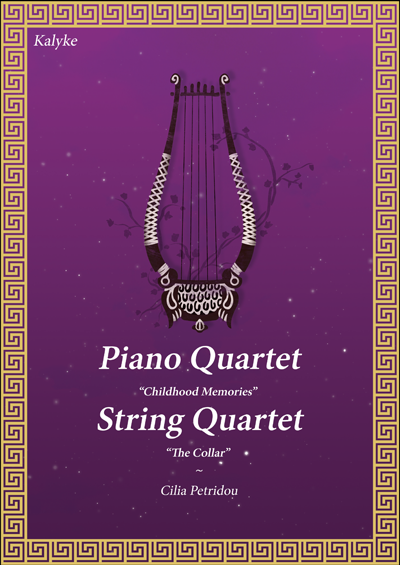
Piano Quartet "Childhood Memories" (1979)
String Quartet "The Collar" (1975)
(119 pages).
Score 1More
Piano Quartet “Memories”
The Piano Quartet was written in 1979, and is full of childhood memories.
Cyprus, “The Holy Island” as it is sometimes called, is a country where festivals commemorating its many saints are interwoven into the very fabric of community life, and the first movement, “Youthful Times”, is an evocation of this.
The second movement, “First Loss”, expresses my first awareness of death. In my early teens I lost three of my peers.
The last movement is entitled “Greek Flag”, and depicts a particular incident of a type that occurred frequently during the Cypriot struggle for independence from British Rule. This was the hoisting of the Greek flag on primary school buildings – usually by boys. Once this was done the headmaster had no alternative but to send the children home until British soldiers came and took it down. This was because the British authorities had expressly forbidden such a hoisting of the Greek flag. This tactic was in fact extremely effective as British soldiers were not available for other operations given that they had to spend a great deal of time patrolling the towns and villages in order to pull down these Greek flags.
The actual incident depicted starts during the mid-morning break. As we are playing happily outside, a whispered rumour starts to circulate that a Greek flag has been hoisted on our school building. Suddenly the bell rings. The headmaster gathers us together and directs us, as usual, to go straight home quietly and quickly.
I set off briskly, as fear soon sets in. As I walk I become aware of all the British soldiers surrounding the area. I break into a run and rush towards the safety of home. What a relief to close the door behind me! However, I cannot resist the urge to quickly open and close it once again just to make sure there are no soldiers outside.
-
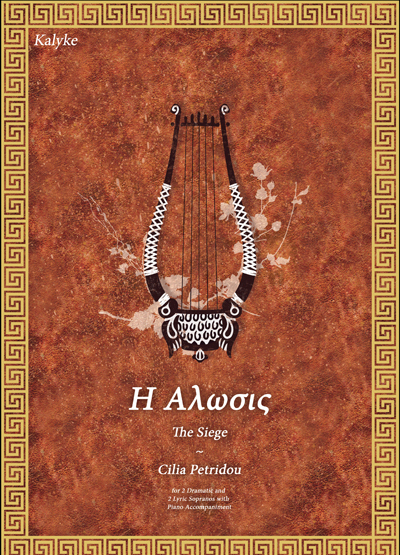
"The Siege" (1984), for 2 Dramatic Sopranos, 2 Lyric Sopranos and Piano (54 pages).
Score 2More
The Siege (of Constantinople)
TranslationChristians of East and West sob, sob, cry at the catastrophe.
In 1453, Tuesday twenty ninth of May, the tyrant took the city of Constantine.
They looted the churches and tore the icons.
They crushed the Silver Cross.
They entered the churches of the Saints on horseback.
The blessed bread they dropped in the streets.
They killed the priest and assaulted the virgins.
Constantine Dragazis, the King of the city, as soon as he heard the news, the very sad news, cried and sobbed and could not find solace.
He grabbed his spear and put on his sword.
From his white-legged horse he attacked the impious Agas who were behaving like dogs.
He killed ten Pashas and sixty janissaries.
His sword broke and his spear cracked. He was left alone without help.
He lifted his eyes towards the Heavens and said: “Almighty God, who has created the world, Bless the people. Bless the city.
He was struck on the head by a Turk, and so it was that the Black Constantine fell from his horse.
He lay on the ground covered in soil and blood.
They cut off his head and placed it on a spear. They buried his body under a bay tree.
Ding, dong. The bells ring. God, Earth and the Heavens echo.
The bells of St. Sophia, the great monastery with 400 wooden bells and sixty two bells.
Each bell a priest and each priest a deacon to enter the Sanctuary, for the King to come out and address the congregation.
A dove came down from the heavens. Stop the liturgy and lower the holy relics.
Priests took the relics and put out the candles. It is God's will that the city will fall.
Only send a message to France to send three ships, the one to take the Cross, another the Gospel and the third and best our Holy Table, so that the infidels do not desecrate them.
The Virgin Mary was troubled and the icons cried.
Hush, our Lady and you icons, do not cry.
In years to come all will be ours.
-
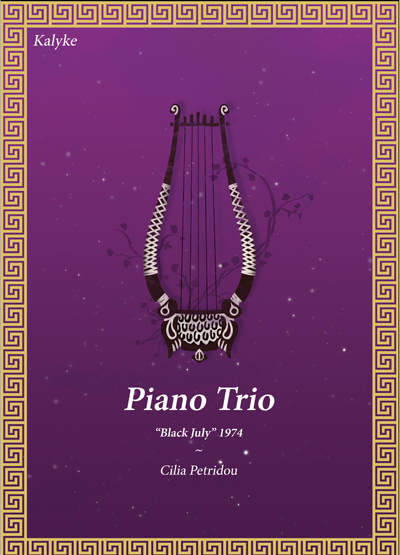
Piano Trio "Black July 1974" (1979)
(81 pages).
Score 3More
Piano Trio “Black July 1974”
This Piano Trio was written in 1979 and is imbued with the emotions generated by the aftermath of the Turkish invasion of Cyprus five years earlier. To this day its capital is the last divided city in Europe.
The second movement, “Lament for Famagusta”, expresses the sorrow felt by all those who can no longer return to what is now a “ghost town”. It was the first movement I wrote – in one session - and no note has since been altered. The other three movements grew around it.
The first movement, “Farewell”, deals with my emotions on leaving Cyprus in 1965 to come to the UK.
The third movement, “Memories 1960”, recalls happy times during the first months of Independence.
The fourth movement, “Optimism – Sadness”, starts with the optimism of 1960 but ends sadly as the invasion of 1974 brings fresh grief to the people of Cyprus.
-
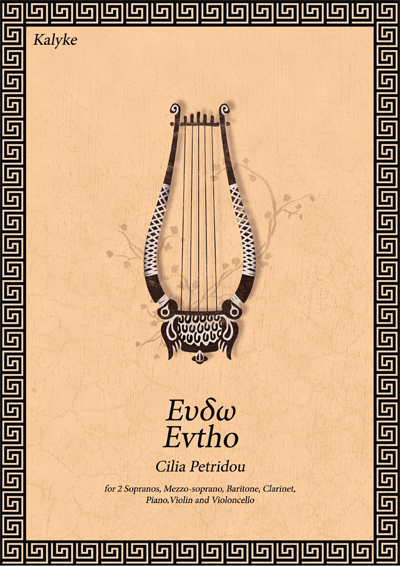
"Evtho" (1988), for voices and small instrumental ensemble (84 pages).
Score 4More
Evtho
Evtho is my setting of a traditional poem which explores the intensity of the relationship between the mother and one of her nine sons, Costas, and her beautiful only daughter, Evtho.
When tragedy strikes and the mother loses her nine sons, nine daughters-in-law and the possibility of ever seeing again her beloved Evtho, married in distant Byzantium, life for her seems to lose its meaning. She feels desolate – like a tree stump in a mountain forest ravaged by uncontrolled logging.
It was Costas who persuaded his mother to allow Evtho to go away. The intensity of his love towards his mother is such that it finally drives him to leave his grave and bring Evtho back to her. The emotional intensity of the final meeting between Mother and daughter is such that they manage only one last embrace. With a smile on their face they mention Costas before they join him.
-
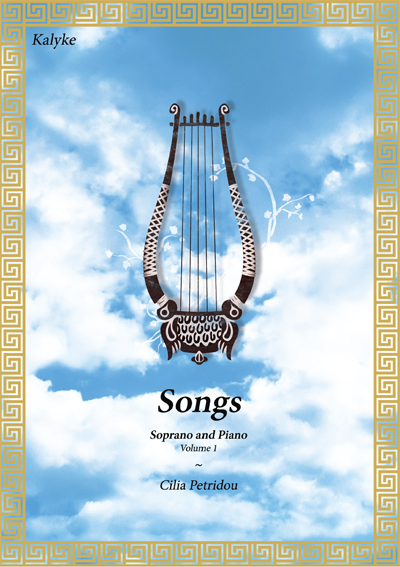
Songs Volume 1 (1992 - 2010), for Soprano and Piano (44 pages).
Score 5More
Songs Volume 1
Included in this volume are seven of my songs – Teresa, Epitaph, What Love Is, Mirrors, Red Lips, Lullaby (Version A) and Optimism.
These songs are settings of Greek poems which have touched me deeply.
In addition to the music, this first Volume includes the poems in Greek with English translations. Also, transliterations and literal translations are provided for those unaquainted with the Greek language.
All those who have been enquiring will be interested to know that these songs have in fact been successfully recorded. They are sung beautifully by Alison Smart and Lesley-Jane Rogers - accompanied by Katharine Durran. This performance will appear on a CD in due course.
On the subject of Greek poetry in general, Professor C. A. Trypanis, in the introduction to his anthology of the finest examples of three thousand of Greek Poetry (published by Penguin under the title of “The Penguin Book of Greek Verse”), writes the following:
“Poetry written in Greek constitutes the longest uninterrupted tradition in the Western World.
From Homer to the present day not a single generation of Greeks has lived without expressing its joys and sorrows in verse, and frequently in verse of outstanding originality and beauty. It is Greek poetry which has given the world the various poetic genres in which Western man has expressed his emotions and so many of his thoughts to the present day; and in many of these genres - the epic, the lyric and the dramatic - the achievements of the Greeks have yet to be superseded.”
-
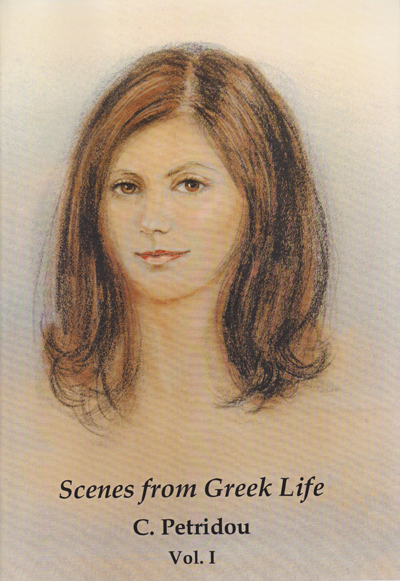
Scenes from Greek Life Vol. I (1988/89), 11 evocative solo piano pieces (85 pages).
Score 6More
Scenes from Greek Life:
Piano Music
Volume I (1 – 11)Daydream, Youth's Dance, The Eve of Zallongos, Cretan Dance, Maiden's Song, The Abduction, Farewell Mountain Peaks, By the Well, Visiting a Ghost Town, Maiden's Dance and Midday Sun.
“Daydream”, the first piece in this collection is also featured on the 1998 Welwyn Hatfield Council CD entitled 'From Hilltop to the Ryde'.
“When, after passing a pleasant range of hills, Levkosia first bursts upon the sight, with her slender palms and minarets, seated in a desert plain, a chain of picturesque mountains as the background, it is like a dream of the Arabian Nights realised – a bouquet of orange gardens and palm trees in a country without verdure, an oasis encircled with walls framed by human hands.”
The above quotation comes from the Preface to the book 'Levkosia Capital of Cyprus' written by Archduke Louis Salvator of Austria. This book was first published in 1873 and conveys, in prose and drawings, the impression made on an educated and artistic young man (not at all a typical Habsburg of the time) by the then great and beautiful city now more commonly known as Nicosia. At the end of three centuries of Turkish rule, Nicosia in 1873 was still very much a city of the old Levant. It is strange to reflect that the British occupation was to begin only five years later!
Delicate descriptions whether they come through writing as above, the visual arts of music help one to develop a feel for a place and its people, whether of bygone days or the present. 'Scenes from Greek Life' gives a musical insight into the Greek psyche.
-
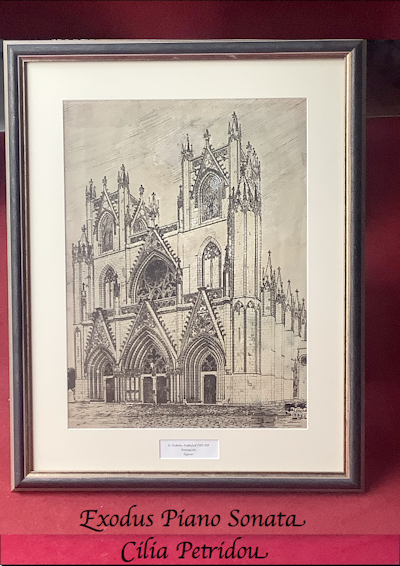
Exodus Piano Sonata (1981)
(20 pages).
Score 7More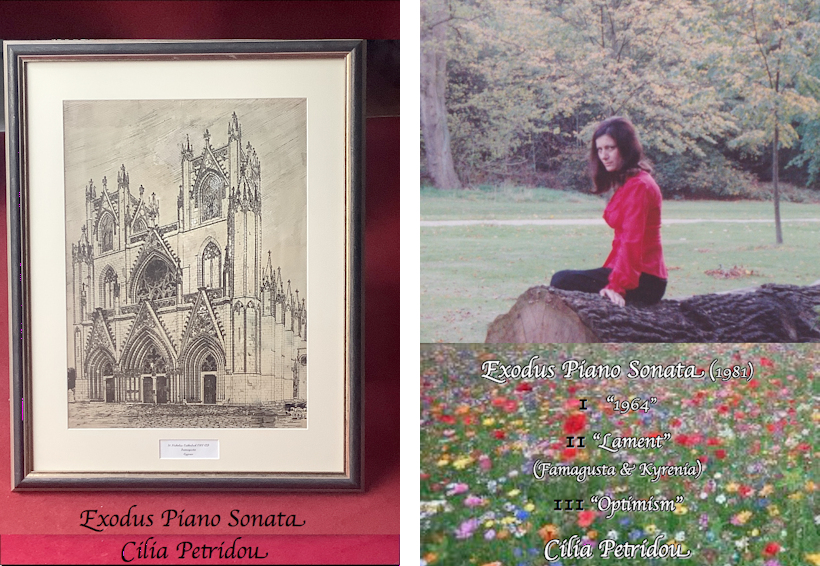
-
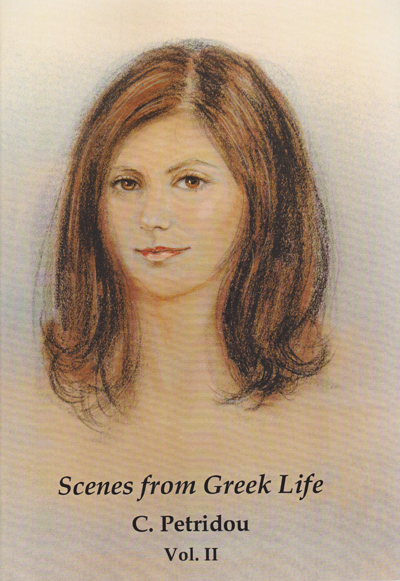
Scenes from Greek Life Vol. II (1989/90), 10 evocative solo piano pieces (76 pages).
Score 8More
Scenes from Greek Life:
Piano Music
Volume II (12 – 21)In the Shade of the Carob Tree, The Shepherd's Flute, Whistling Along, The Swings at Famagusta Beach, Just a Playful Dance, Moon Reflections by the Sea, Capriciousness, The Song of the Exile, Golden Sand and St. Andrew's Enclave.
“When, after passing a pleasant range of hills, Levkosia first bursts upon the sight, with her slender palms and minarets, seated in a desert plain, a chain of picturesque mountains as the background, it is like a dream of the Arabian Nights realised – a bouquet of orange gardens and palm trees in a country without verdure, an oasis encircled with walls framed by human hands.”
The above quotation comes from the Preface to the book 'Levkosia Capital of Cyprus' written by Archduke Louis Salvator of Austria. This book was first published in 1873 and conveys, in prose and drawings, the impression made on an educated and artistic young man (not at all a typical Habsburg of the time) by the then great and beautiful city now more commonly known as Nicosia. At the end of three centuries of Turkish rule, Nicosia in 1873 was still very much a city of the old Levant. It is strange to reflect that the British occupation was to begin only five years later!
Delicate descriptions whether they come through writing as above, the visual arts of music help one to develop a feel for a place and its people, whether of bygone days or the present. 'Scenes from Greek Life' gives a musical insight into the Greek psyche.
-
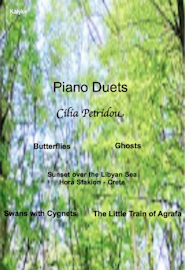
Five Original Piano Duets 1980 - 1985
(37 pages).
Score 9More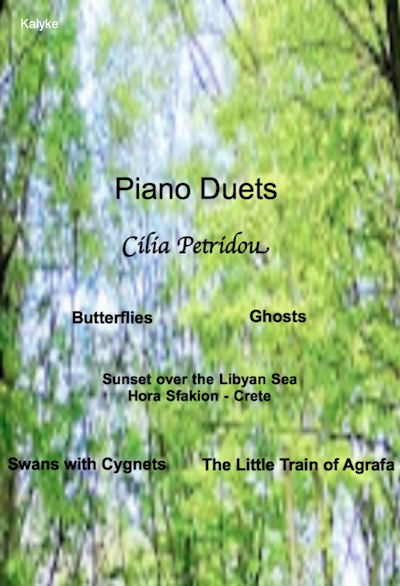
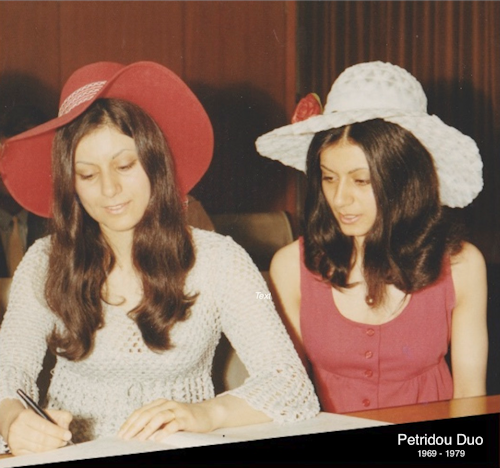
Five original duets (1980 - 1985)
Butterflies, Swans with Cygnets, Ghosts
The Little Train of Agrafa, Sunset“If you love subtle rubatos to satisfy your inner
soul and feel rejuvenated, then these five original duets
are just the music you are looking for to be inspired!” -
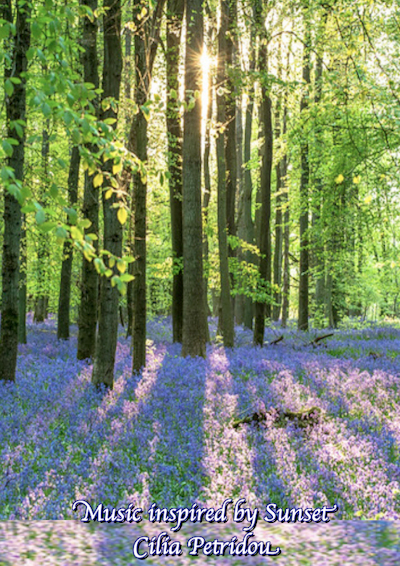
Sunset Music for Piano
(22 pages).
Score 10More
-
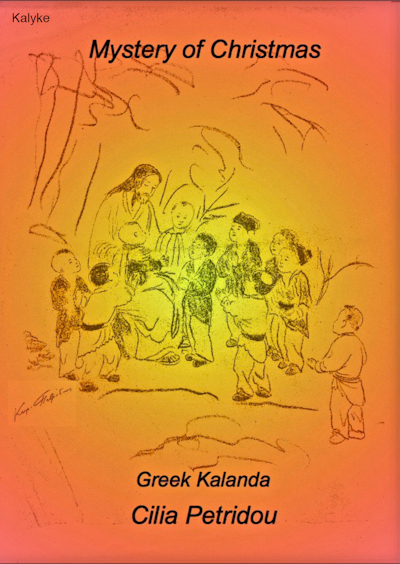
Mystery of Christmas, Greek Kalanda
(94 pages).
Score 11More
Mystery of Christmas:
“Kalanda” (Greek Carols)Singing Kalanda is a very old custom in the Greek world. There are Christmas, New Year and Epiphany carols.
Until 1833, when the Christmas Tree was introduced to Greece by its new King, Otto of Bavaria, the symbol for Christmas was the Karavaki (or Christmas Boat).
According to tradition, Dionysus arrived by boat in December, the month in which he was much celebrated in ancient times.
In the Greek world of today it is Saint Nicholas (the western Father Christmas) who is celebrated in December (on the 6th). He is the patron saint of seafarers, and his symbol is the ship.
Greece has always been a seafaring nation, and decorating the Christmas Boat was a way of welcoming home the seamen by their wives and children.
In the Greek world Father Christmas is Saint Basil the Great, who brings gifts to children on the first of January, which is Saint Basil's day – the day on which it is traditional to serve vasilopita, a cake baked with a coin inside. It is also traditional to set an extra place at the table for Saint Basil.
Basil was born around 330 A.D. into a wealthy, and very devout, family living in Caesarea. He eventually gave away all his possessions to children and to the poor.
On Christmas Eve and New Years Day children go around and sing kalanda to the accompaniment of instruments like the triangle or drum. The traditional reward for this used to be dried fruit and sweets - replaced nowadays with money.
The Greek word kalanda derives from the Latin calenda, which means the first day of the month.
-
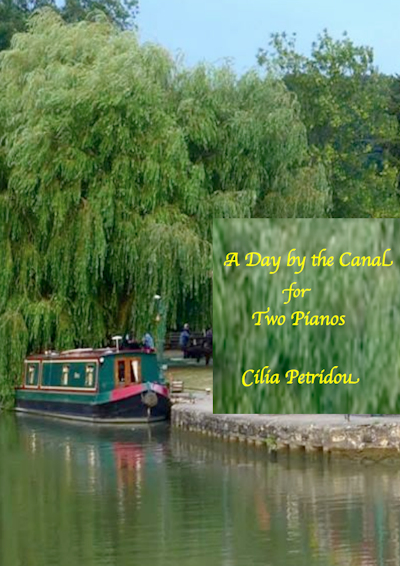
A Day by the Canal (1986) for Two Pianos
(36 pages).
Score 12More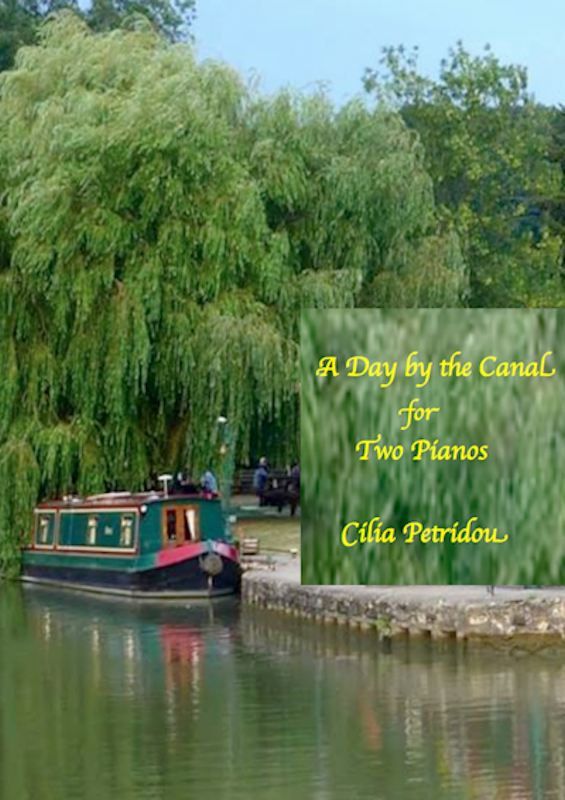

A Day by the Canal (1986) for Two Pianos
If you love subtle rubatos and frequent artistic tempo changes, this work will invigorate you!
It explores the sheer variety of boats moored by the canal, and each boat in turn reflects the personality of the people living or holidaying in it.
-
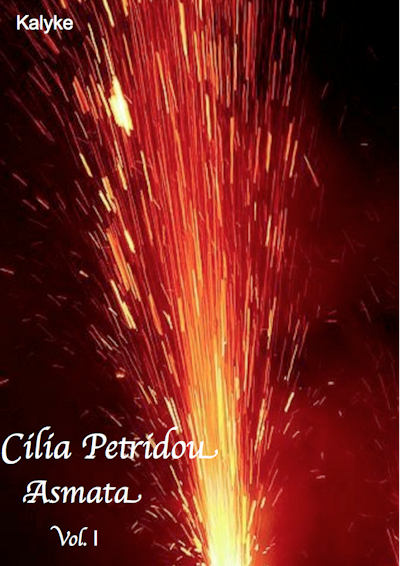
Asmata Volume 1 for Voice and Piano
(72 pages).
Score 13More
Asmata Volume 1 for Voice and Piano
Page 1 
Teresa 2 2 
Lullaby 4 3 
Beauty 8 4 
Mirrors 12 5 
Enough 16 6 
The Nun 19 7 
Epitaph 25 8 
What Love is 26 9 
Away from you 30 10 
Red Lips 36 11 The soul selects her own society 40 12 
Wait 43 13 
Kyrenia 45 Music-setting:
Robin Hagues: 1,2,3,4,6,7,8,10,12
Cilia Petridou: 5,9,11,13
Music-setting: Scores 1-5 Robin Hagues, 6-10 & 12-13 Cilia Petridou
Cover design: Scores 1-5 Adam Whitnall, 6 onwards Keith Stearne